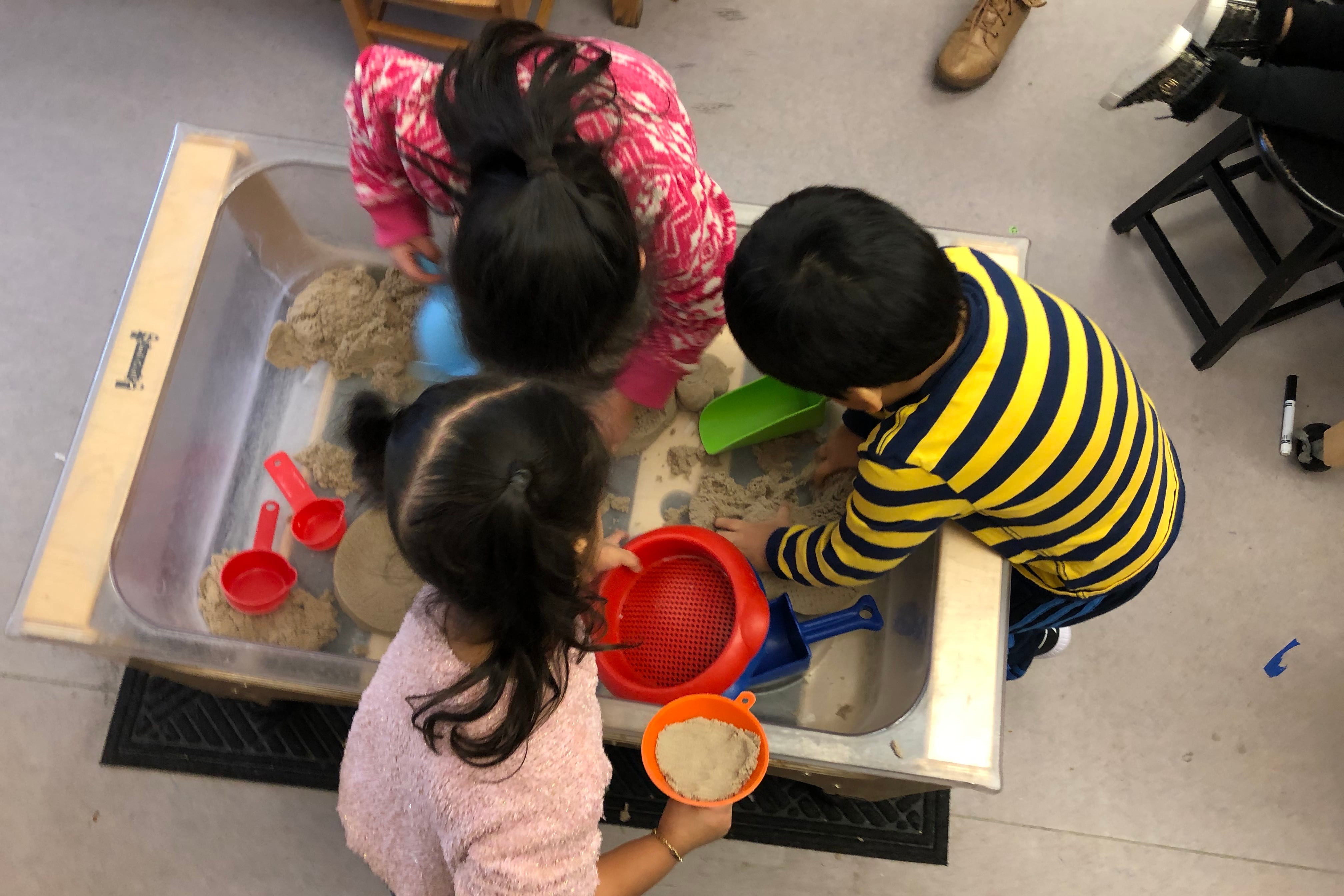A group of child care advocates are warning of “devastating” impacts on nonprofit and community-based centers and say some organizations could be on the verge of closing.
Fifteen centers that care for low-income children are set to lose all of their city-granted public funding and at least another 10 will see substantial funding reductions on June 30. The city set that date after reshuffling funds for early learning as it moved toward universal prekindergarten.
Now one of those organizations, the West Austin Development Center, has filed suit against the city in Cook County Circuit Court, alleging flaws in the grant process Chicago used to reshape early learning. The suit, expected to go before a judge mid-month, demands that the city redo the award, which affects nearly every publicly funded early education center in Chicago and is worth about $1 billion across five years.
Separately, the heads of 135 organizations in Chicago have written increasingly urgent letters to Mayor Lori Lightfoot and her top early education deputies demanding funding to be restored to the centers and warning of potential closures if it isn’t.
A public affairs spokeswoman from the city’s law department said City Hall would not comment on pending litigation.
West Austin serves 200 children up to age 5 on the city’s West Side. Owner Tamera Fair, who owns several other centers, said she filed suit after the city refused to provide her the scoring sheet or the actual scores from the grant competition.
Her suit, which names the commissioner in charge of the city’s department of family services, Lisa Morrison Butler, in addition to the city of Chicago, describes a litany of errors, including chronic delays in the grant, poor communication, and software glitches in the application portal— resulting in Fair’s application getting improperly routed to a grant pool with less money available, according to the suit.
The complaint appends eight error messages on the day that applications were accepted.
At least one other Chicago provider told Chalkbeat they experienced the same thing last fall and also were moved to a second funding round, then told less money was available.
“We saw how flawed the (grant) process was and it was so hard to get the scoring rubric, or find out how we were scored,” said Fair. “Why can’t we get this information? Isn’t this a public entity?”
Chalkbeat also filed a public information request for the grant scores last fall. The city denied the request.
Fair’s suit also claims the city has a conflict of interest in overseeing the early learning grant-making as it is expanding universal pre-K in its schools. Expanding preschool draws students and staff from child care centers, providers have said.
Any early learning organization seeking funding from four of the largest state and federal funding streams for young children must submit an application through Chicago, which administers those grants — an increasingly unusual situation among large urban centers.
“The city writes the rules, runs the process, makes the awards, but at the same time competes with those it administers,” the suit reads. “And to make matters worse, the city mandates that [community-run organizations, such as Fair’s] must participate in this system without any alternative or means for appeal. It’s a conflict of interest.”
Fair’s lawyer, James Taylor, said court delays due to COVID-19 have impacted the case, but he is hoping to get his request for a temporary restraining order heard before the June 30 deadline. The way the case is structured, the restraining order would apply to any center in a similar position as Fair’s.
Fair said the argument for extending investments in child care centers cannot be decoupled from the protests spurred by the killing of George Floyd in Minneapolis and calls for more investment in Chicago neighborhoods in the wake of data that shows the disproportionate impact of COVID-19 on black and brown residents.
“Education is the best avenue to climb out of poverty,” said Fair. “At a time when economic and cultural disparities are at their highest peak, we definitely don’t need to be retracting those dollars (from our early education centers).”
Chicago’s family services department and the mayor are also the targets of a letter-writing campaign, signed by 135 organizations under the umbrella of Child Care Advocates United, a Chicago association.
In the latest letter, advocates say they have reached out to the city three times without response in recent weeks. “While we can appreciate that there is a litany of pressing agenda items to attend, this is very atypical of your office to be non-responsive,” said the latest letter, sent Wednesday.
The stakes are high, said Beata Skorusa, the owner of Montessori Foundations of Chicago, a center on the city’s South Side, who helped draft the letter.
“There are a few programs that will literally close doors,” she said. The pressure is higher because COVID-19 closed the vast majority of child care centers, and state guidelines for reopening set strict caps on capacity — meaning centers must re-enroll fewer children.
Nationally, child care advocates have warned of a looming crisis in child care, since only a small percentage stayed open during the pandemic to care for emergency workers and new reopening guidelines have proven costly. Estimates from a national child care advocacy group warned that roughly one-third of Illinois’ child care centers were at the risk of closing before the state stepped in with some short-term relief.
Skorusa will stay open but she said the impact of losing city funding could be higher co-pays for her families, including low-income ones. “Some families will be priced out.”






